32 surprising things dogs can eat besides dog food
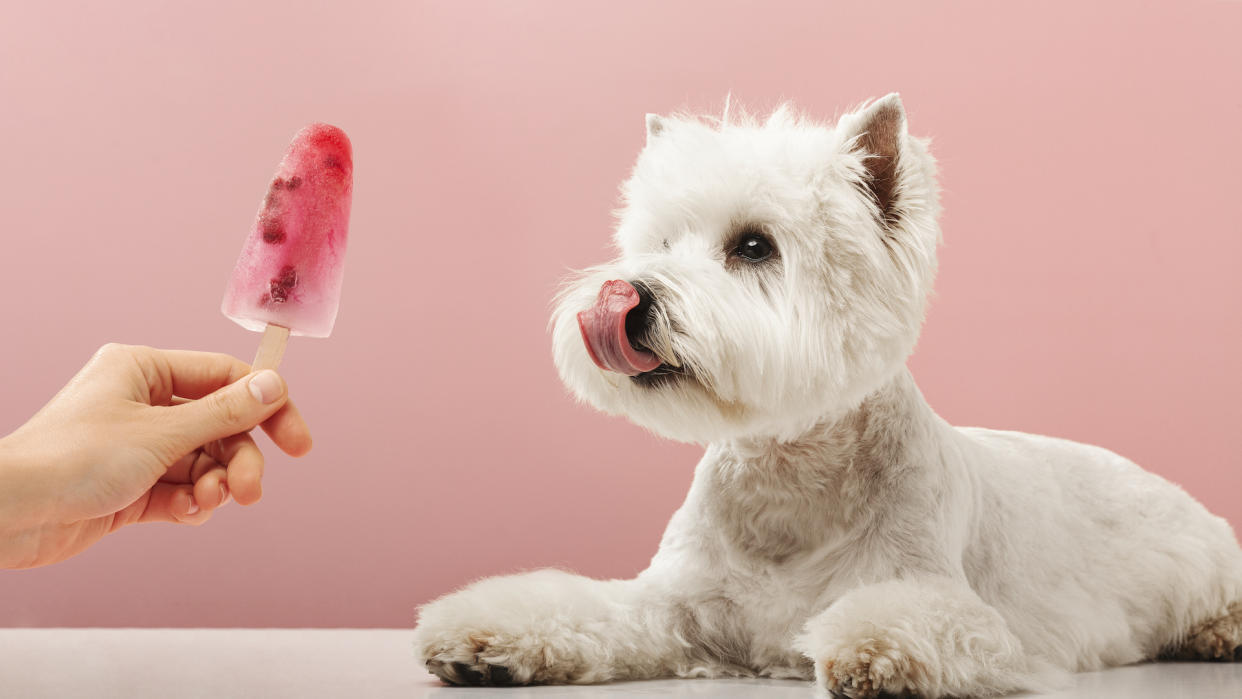
Most dog food brands have been carefully formulated to adhere to nutritional guidelines so that your pooch gets all his essential nutrients, minerals, and vitamins. However, in moderation as an occasional snack, feeding dogs safe and appropriate human food can be a delightful way to offer variety and nutritional benefits to your pet.
Owners who ask themselves what human food can dogs eat will relish learning that many surprising foods are generally considered safe for dogs when offered in moderation. Many types of fruits and vegetables can be excellent additions to your dog’s diet. Additionally, plain, cooked grains like rice or quinoa can provide a healthy source of carbohydrates. Always ensure that the foods are free from additives, seasonings, and harmful substances like onions, garlic, and certain spices that can be toxic to dogs.
When incorporating human food into your dog's diet, it’s crucial to maintain an appropriate snack ratio to prevent overfeeding and ensure a balanced diet. Natural treats and snacks should constitute no more than 10% of your dog’s daily caloric intake. This helps to avoid nutritional imbalances and maintains the dog’s overall health. Consider the size, age, and activity level of your dog when determining the portion sizes of human food treats. By being mindful of the snack ratio, you can create a healthy and enjoyable approach to incorporating safe human foods into Fido’s diet.
Let’s take a look at some of the more surprising foods dogs can safely eat.
32 surprising things dogs can eat besides dog food
1. Pumpkin puree
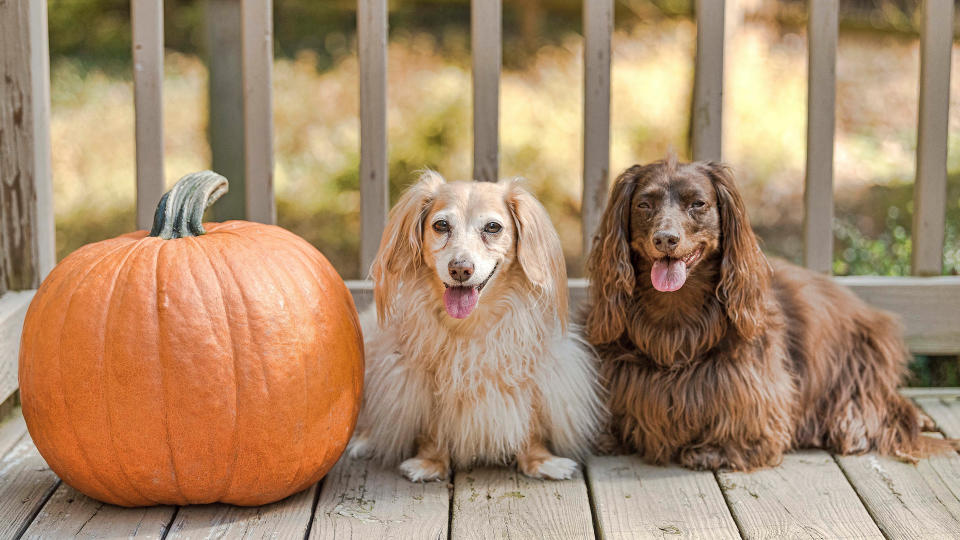
Fresh or canned pumpkin is not only fine for dogs to eat, but it has many benefits. It is rich in fiber, and is packed with vitamins and minerals including potassium and iron.
If your dog is suffering from diarrhea, pumpkin puree may help improve their digestion, as its fiber absorbs water from the stools, firming them up, as well as supplying energy and lowering pH levels in the intestines.
Just don’t serve it in a pie!
2. Popcorn

Movie nights take on a new family meaning with a helping of popcorn for both humans and pooches. However, dogs should only eat plain, air-popped popcorn, so hold off on the buttery, toffee, sweet and salty toppings. Most dogs love the satisfying crunch.
3. Seaweed
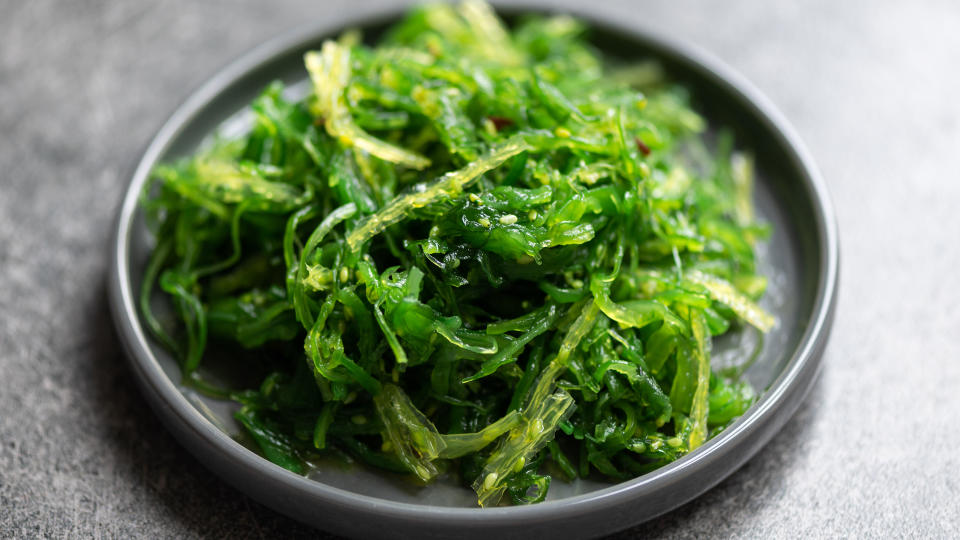
Seaweed has many nutritional benefits, being rich in omega-3 fatty acids and minerals such as iron, magnesium and iodine.
Although all seaweeds are edible, ground seaweed powder is the recommended way to get these valuable nutrients into the diet. If you want to feed kelp and nori, make sure they do not contain salt, garlic and other seasonings that could be toxic to dogs. The plainer the better.
And it’s not a good idea to let your dog scavenge seaweed along the beach as you don’t know what pollutants, high salt levels and sea creatures might be lurking within.
4. Cottage cheese
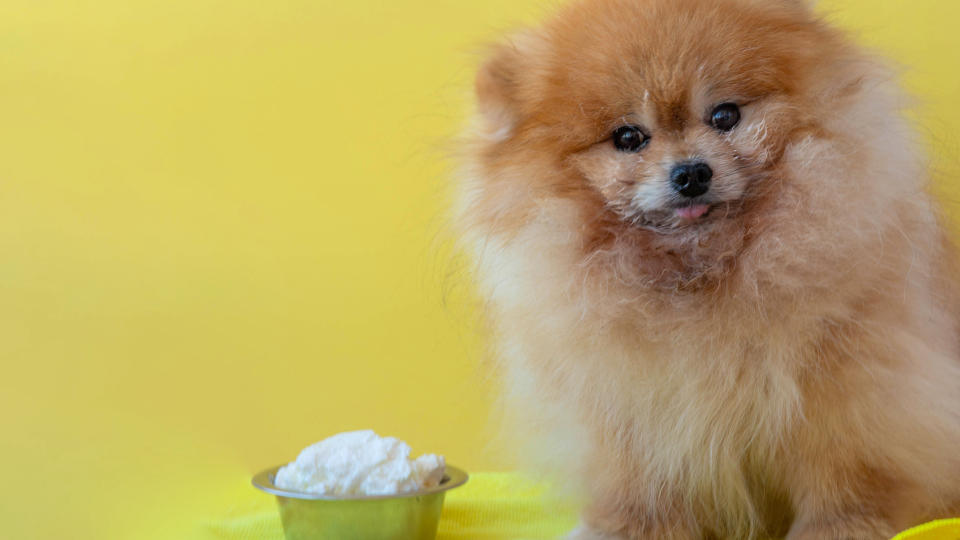
Some dogs enjoy cottage cheese and it is safe to feed as a treat. Although many dogs are lactose intolerant, cottage cheese is fermented and so the lactose levels are minimal. It can be a soothing food for dogs recovering from stomach upsets.
5. Banana parfait
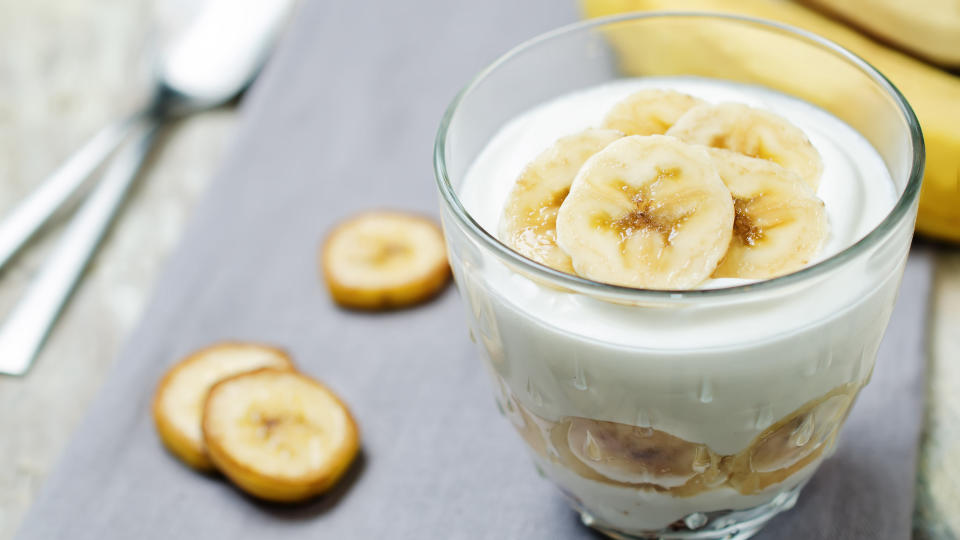
Whisk up a banana parfait made from fresh bananas and plain, unsweetened Greek or kefir yogurt and feed as a treat in moderation. Yogurt provides protein and calcium. Banana contains electrolytes, potassium and fiber, and is a calming food for a dog’s digestion, so can help an unsettled tummy.
6. Watermelon
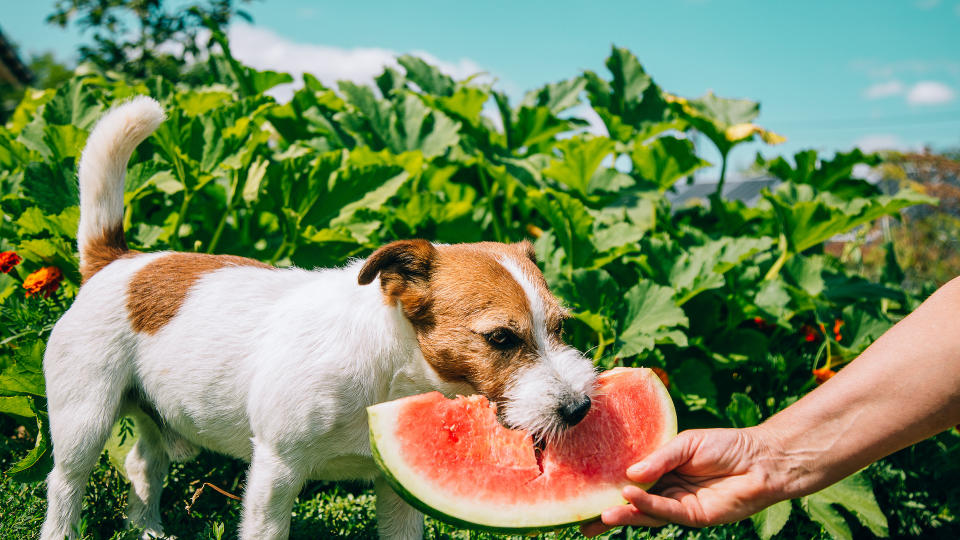
A refreshing treat in summertime – and great for colorful social media shots of your precious pooch! Remove the seeds and the rind, which can cause digestive issues, and feed in moderation. Watermelon is low in calories but nutrient-dense, with plenty of vitamins and gives a hydration boost in hot weather.
7. Coconut oil
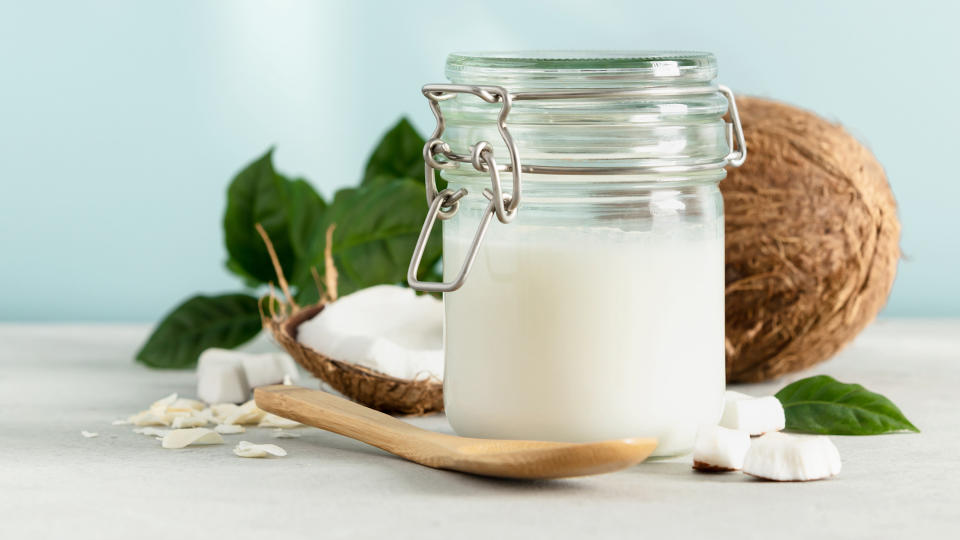
Coconut oil has many benefits for dogs, having anti-inflammatory, anti-fungal and antibacterial properties. It is also useful for freshening breath and giving canine coats a sleek luster. Start with small amounts and build up the dosage gradually, because if you give too much, the dog may suffer diarrhea.
It can also be applied topically.
8. Curly parsley
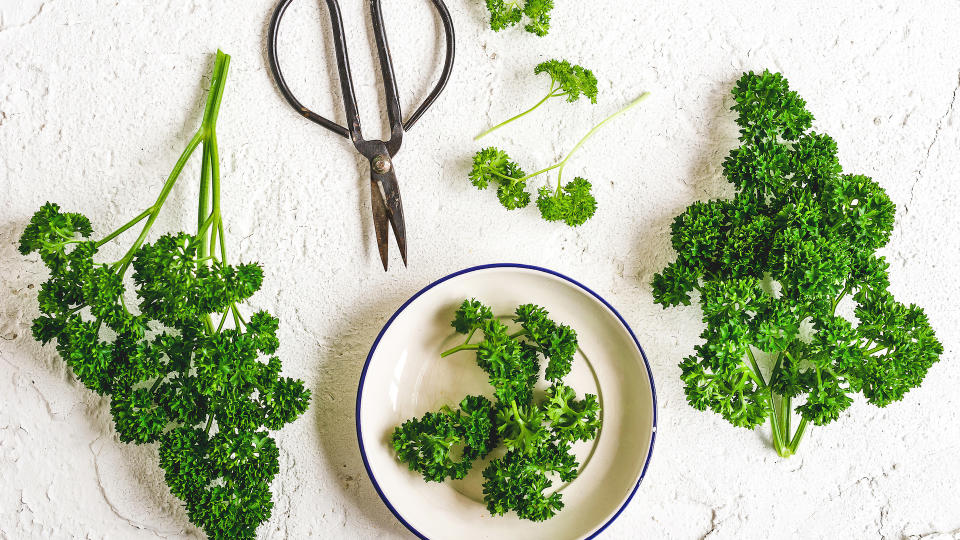
Parsley is a super herb, providing vitamins that support the immune system and promote liver health. It is also rich in folic acid and antioxidants, has anti-inflammatory and microbial properties. A bonus is that it works well as a breath freshener. However, it is important only to feed the curly variety as other types of parsley can be toxic if fed in large amounts.
9. Green tripe
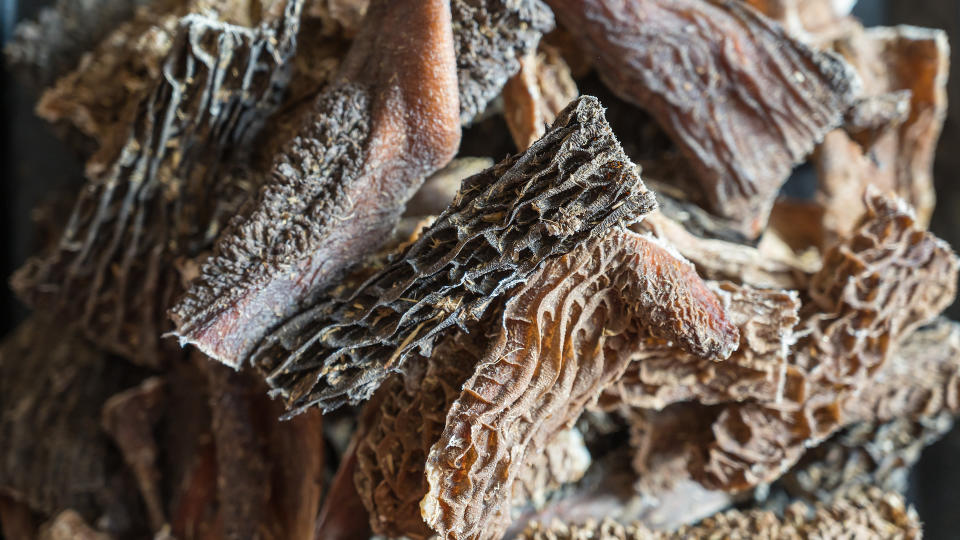
Despite its revolting odor, offal is a popular natural health choice for dogs. Green tripe is the stomach lining of a ruminant (an animal that chews the cud), and has high nutritional value being full of digestive enzymes and beneficial bacteria, which in turn can improve your dog’s digestion. While some humans eat tripe, it is bleached and boiled, whereas green tripe is untreated (and usually more brown than green). It makes a great chewy dog treat.
10. Cucumber
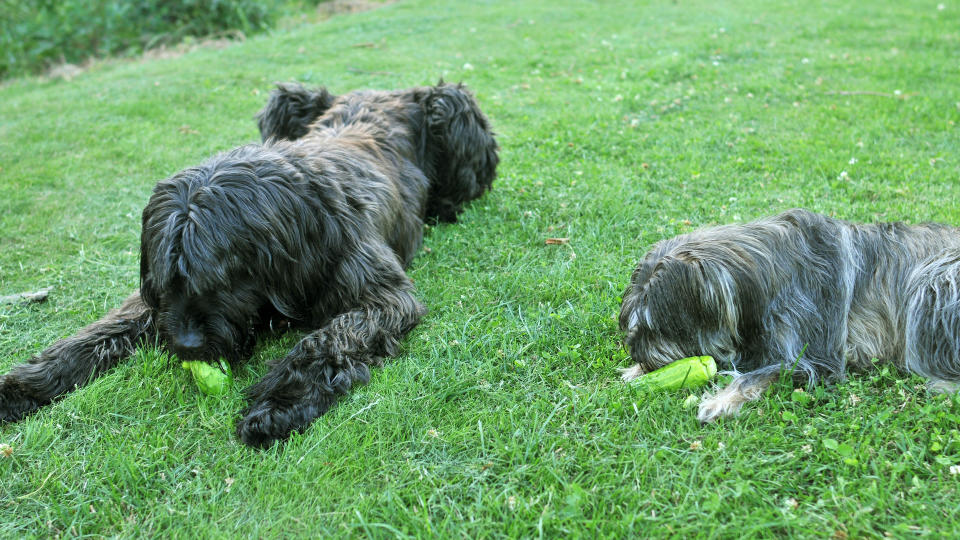
Many dogs enjoy the satisfying crunch of cucumber. It’s an ideal snack especially for those dogs needing to watch their weight, as it’s low in calories, low in sodium and fat-free. As cucumbers are 90% water, they are hydrating, which is useful in hot weather. The skin is a source of fiber and promotes good bacteria in the gut.
They also contain vitamin K, which is good for the blood and skin; and minerals such as potassium, copper and manganese, plus antioxidants to freshen breath.
11. Dried fish skins
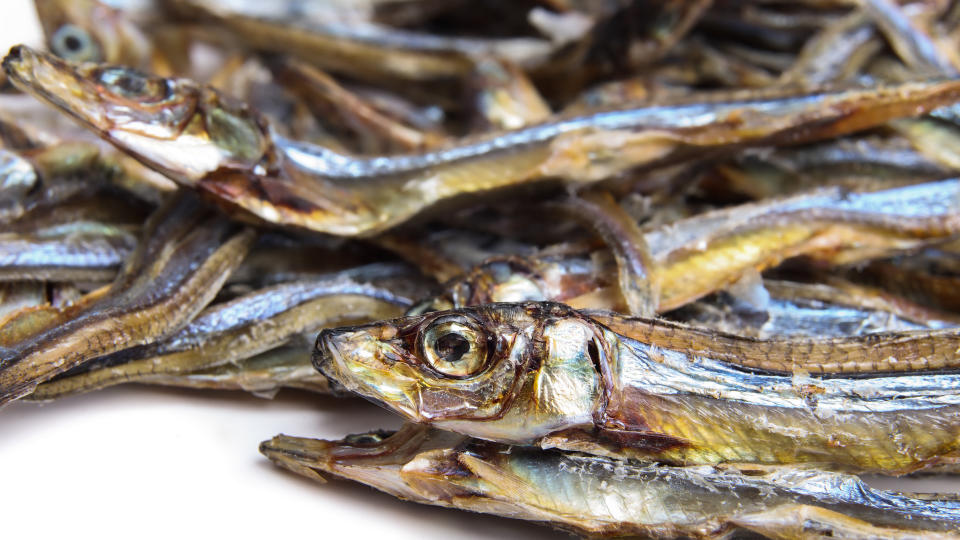
Digestible, high in protein and containing omega 3, fish skins are highly palatable for dogs, and promote healthy skin and coats. They may look and smell disgusting to human eyes and palates, but their crunch and taste are irresistible to dogs.
12. Celery sticks
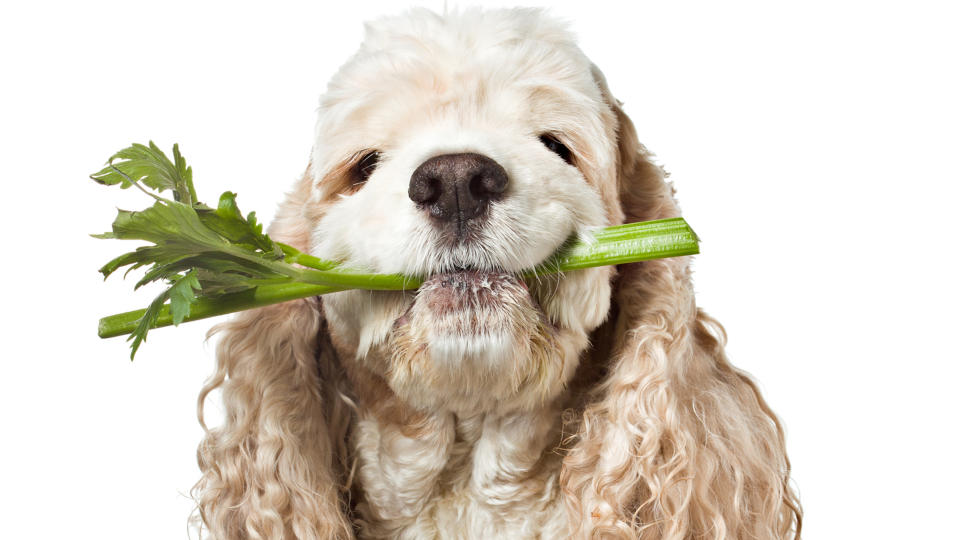
This love-me-or-hate-me vegetable tends to prove popular with dogs, who enjoy the crunchy bite. It is a great source of vitamins A, K and C, plus minerals and antioxidants. It also has a high water content, for hydration, and is low in calories and fat.
Health benefits include lowering blood pressure and cholesterol, improving inflammation, good digestion, and keeping breath fresh.
13. Fruit salad
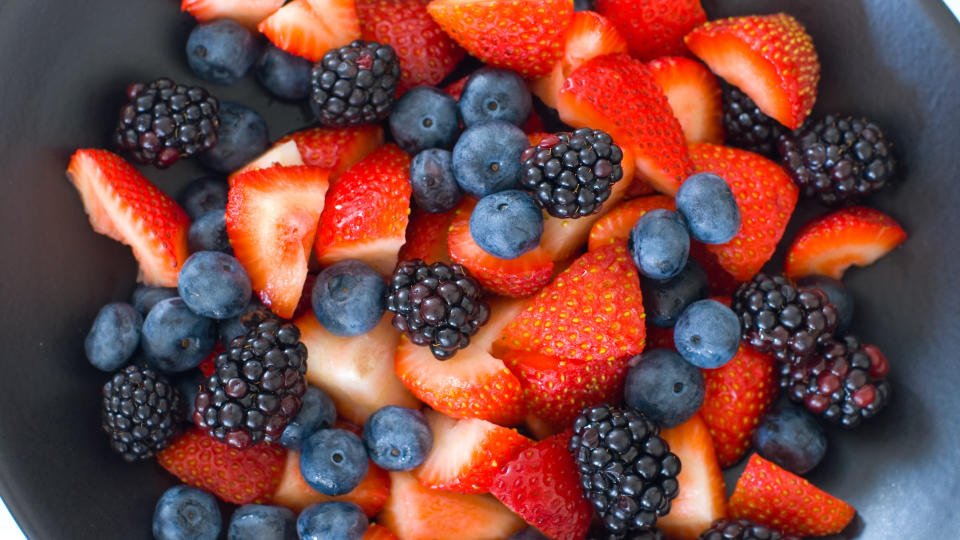
Providing you don’t add syrup or sugar to your fruit salad, many dogs will enjoy a colorful mix of fruit as an occasional treat. Stick to ingredients such as berries without pits (strawberries, blueberries), melon and banana. Do not include grapes, which are toxic to dogs.
14. Popsicles
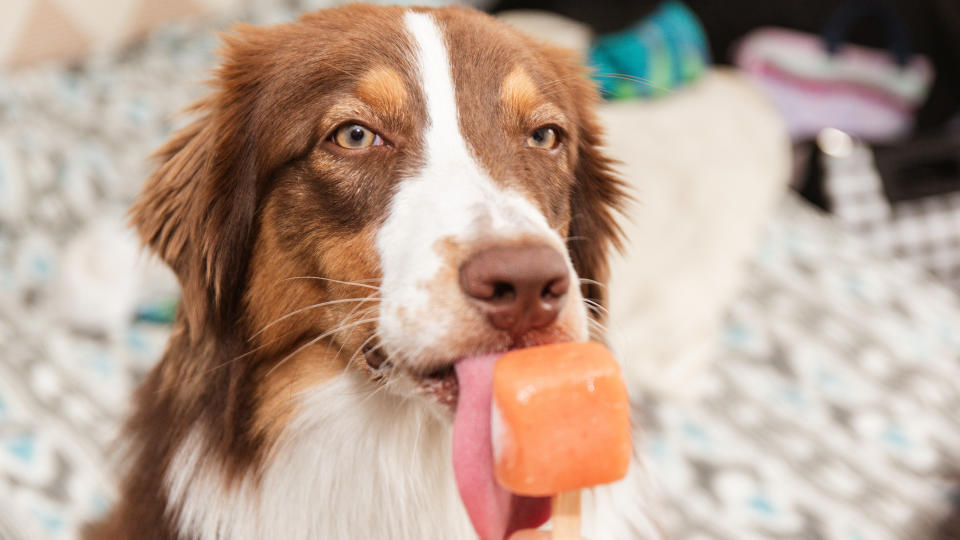
While commercial ice cream is a no-no, home-made popsicles using safe ingredients such as strawberries, plain Greek yogurt and peanut butter (without xylitol) are a brilliant treat on a hot summer’s day. Find out how to make your own frozen dog treats.
15. Egg shells
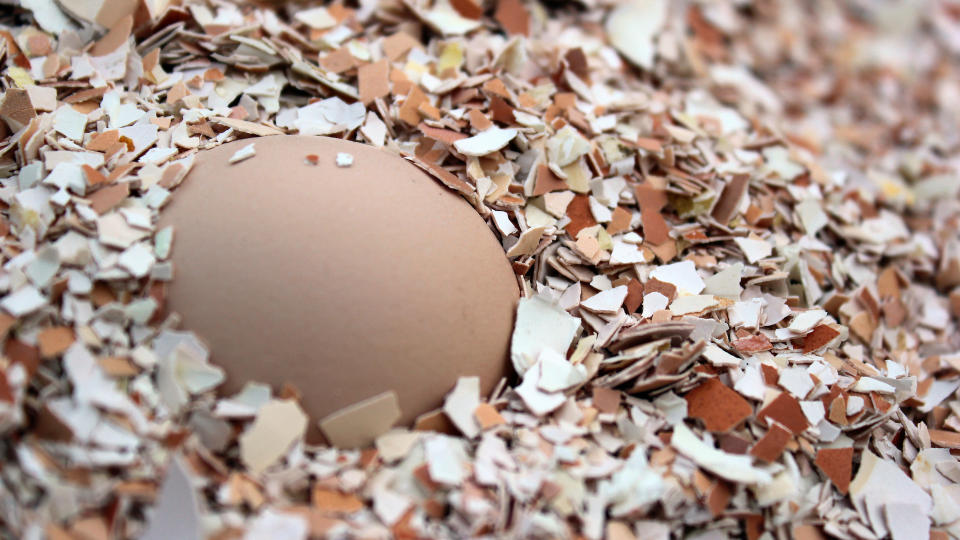
Eggshells contain calcium, glucosamine and chondroitin so have great nutritional benefit for your dog. The membrane is believed to be particularly effective in reducing joint pain, according to a veterinarian study carried out in 2016 by Dove Press.
Many dogs like the crunchy sensation, however the small shards of shell can produce sharp edges which can damage the mouth, throat and intestines, so crush it well.
16. Cranberries
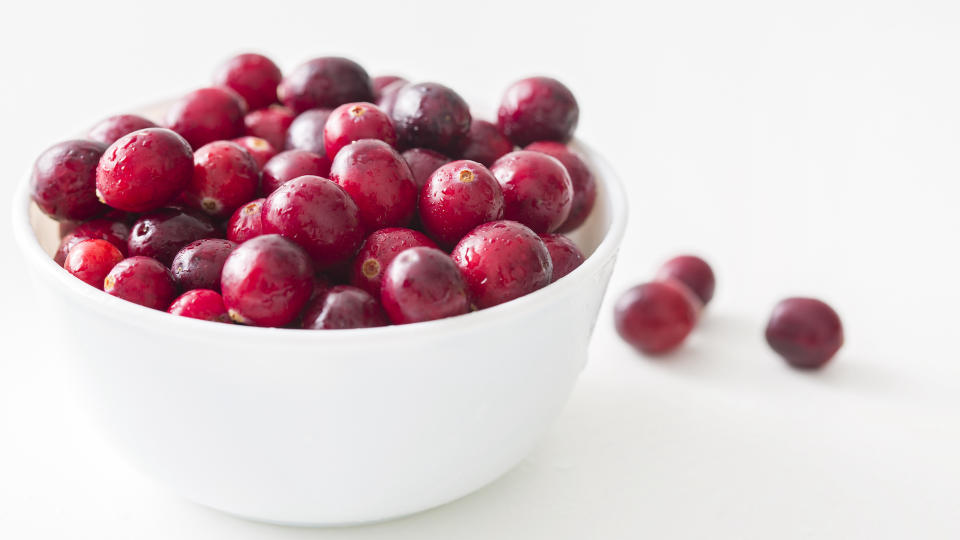
These dark red berries make for a surprising food that dogs can eat safely, due to their similarity to grapes in their fresh form, and raisins in their dried form, which are both toxic to dogs. Cranberries, in moderation, are a healthy treat, packed with fiber, vitamins and antioxidants that boost immunity.
Dogs can eat them fresh or dried, but ensure there are no added ingredients such as sugar, xylitol, or harmful nuts and raisins (for example in a trail mix).
17. Cookies
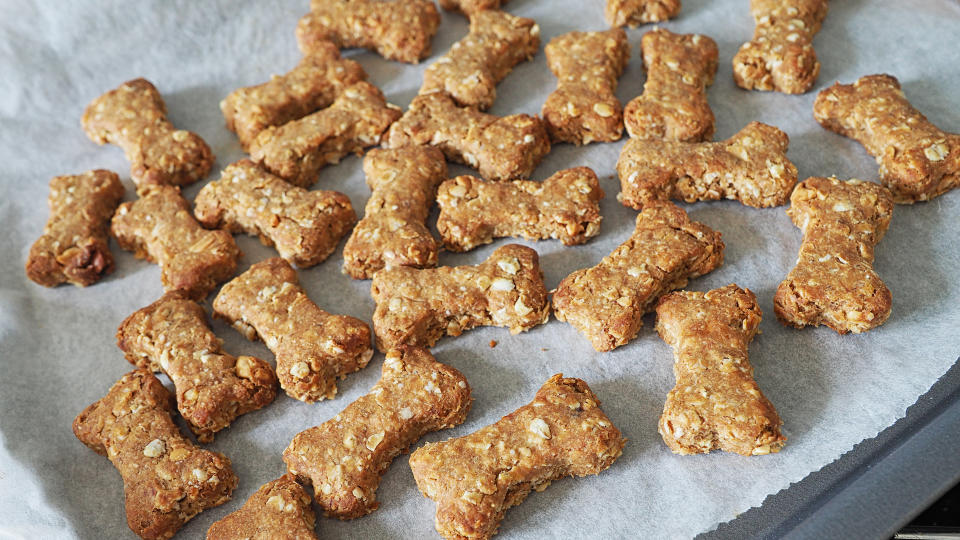
This one comes with a big proviso, you must absolutely not feed your dog regular cookies from a store, as they are likely to be loaded with toxic ingredients. But if you are happy to roll up your sleeves in the kitchen you can make delicious cookies with dog-friendly ingredients for both you and Fido to enjoy.
Combine oats, peanut butter (not containing xylitol) and a bit of coconut oil and bake cookies, for a safe treat for your pup. This will provide nutrients and fiber in a surprisingly healthy package for your dog.
18. Carob
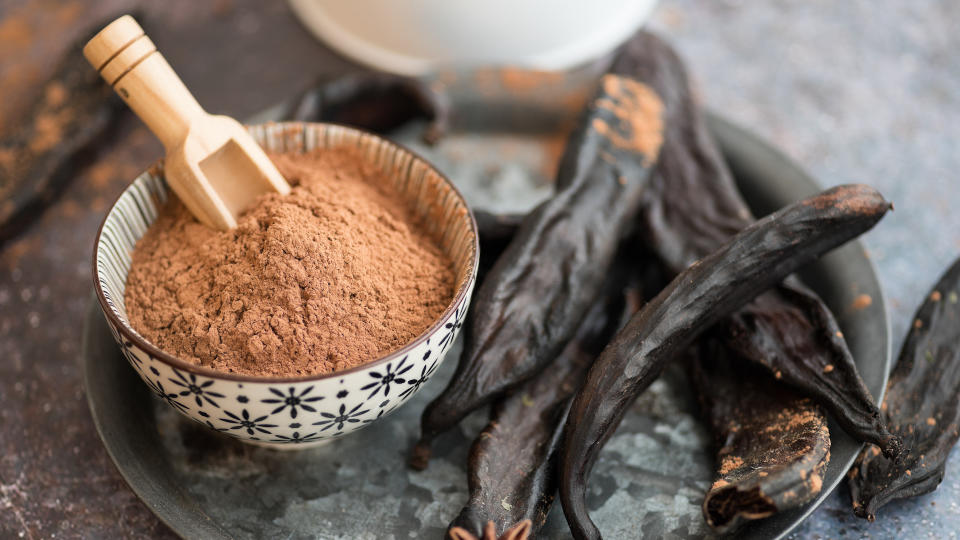
While chocolate is strictly off-limits for dogs due to the toxic ingredients such as theobromine, oxalic acid and caffeine, carob is a chocolate substitute that packs in several healthy nutrients such as fiber, protein, calcium, potassium, iron and vitamins. It comes in the form of powder, chips and beans, and is sometimes used in dog treats. Just make sure you get a natural, unsweetened version.
19. Chia seeds
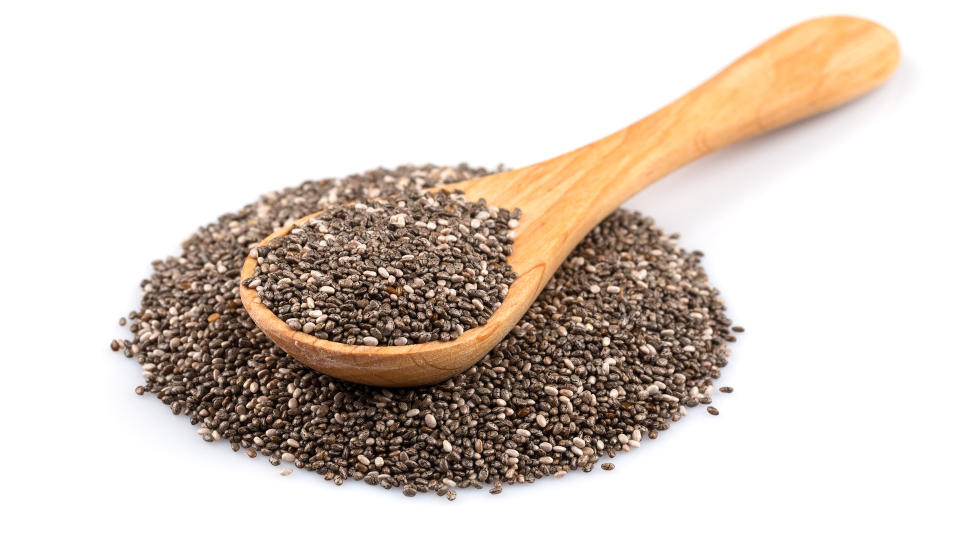
A superfood for humans, chia seeds are a good source of vitamins, antioxidants and fiber to support your dog’s digestion. They also contain omega 3s for healthy skin and coat and reduced inflammation.
20. Yak milk

While many dogs are sensitive to cow’s milk, yak milk seems to be well tolerated. An exotic option, but as yaks are reared in a natural and organic environment consuming wild Himalayan grasses and herbs, their milk tends to be filled with health benefits. Yak milk or cheese chews, are a popular treat for dogs, and can help reduce plaque and tartar build-up.
21. Ostrich
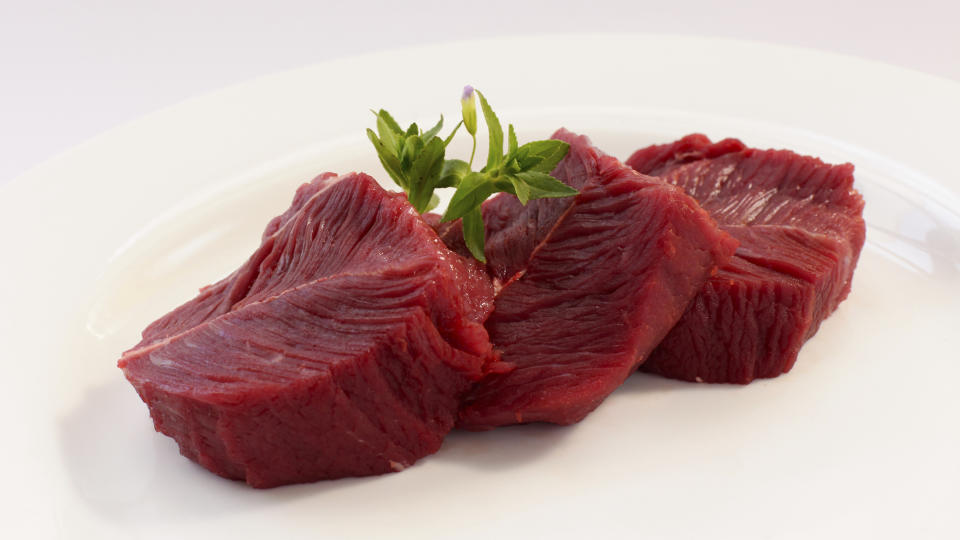
This exotic meat is a great option for dogs as it is a well-tolerated protein source, which is tasty, nutritious and easy to digest. It is especially rich in iron, omega 3 and 6, and low in fat.
22. Fresh pineapple
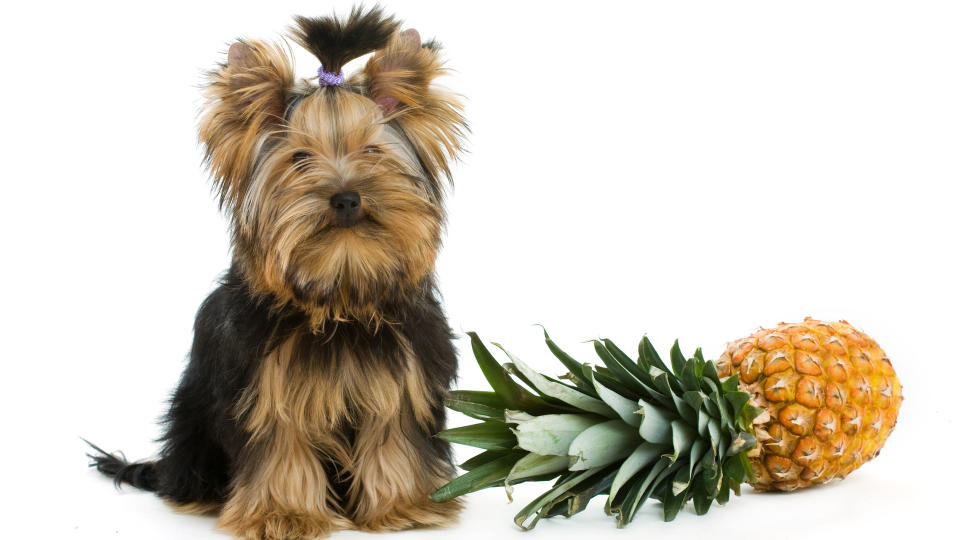
Steer clear of the skin, the tough central core, or canned pineapple – which is usually in syrup – and small portions of fresh pineapple make for a sweet and juicy occasional treat for dogs. It is rich in vitamins B and C, as well as containing minerals and electrolytes that will support your dog’s immunity and digestion.
Even fresh pineapple is high in sugar, so dogs at risk of diabetes should forego this treat.
23. Spinach omelet

If you want to share a proper meal for your dog, how about a spinach omelet? Spinach and, especially, eggs both have nutritional benefits in moderation. However, be sure not to add any toxic ingredients you might usually use in an omelet such as garlic or onion.
24. Rice cakes
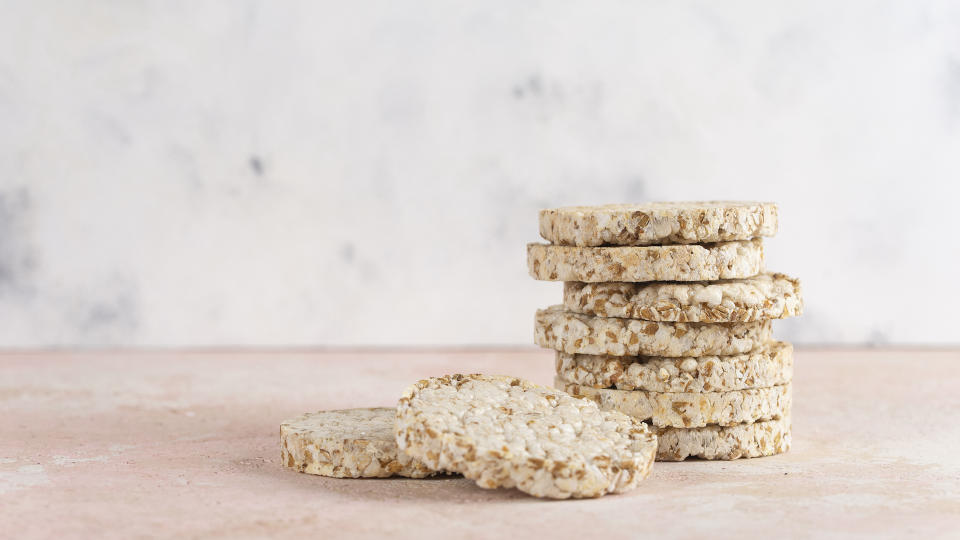
Usually thought of as a human’s snack, these discs of puffed rice can be shared with your dog. Check the ingredients, but most rice cakes are made simply from brown rice and a smidgen of salt. Rice is easily digestible for dogs as a slow-release carbohydrate.
They might enjoy the crunching sensation but there is not much nutritional value in a rice cake, so other snacks will offer more substantial health benefits.
25. Jerky
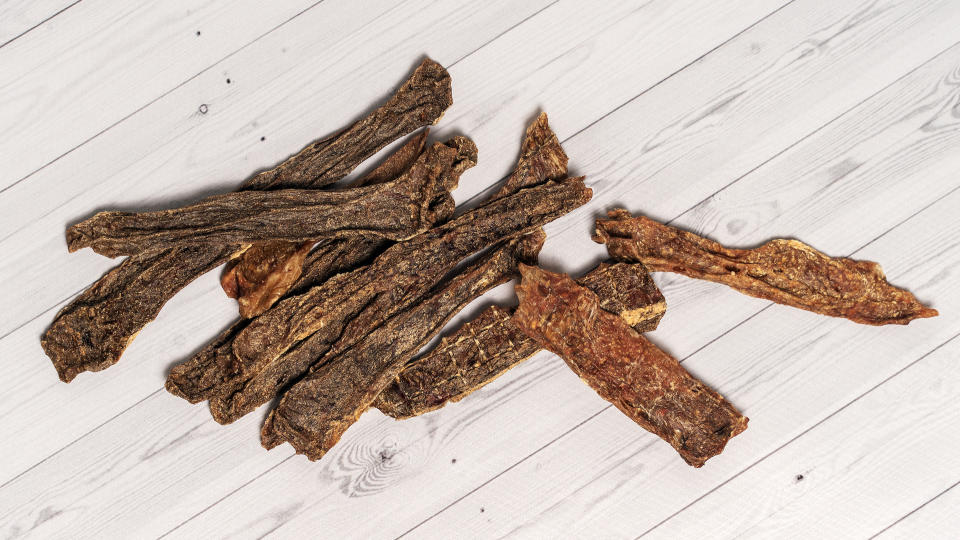
There’s jerky and there’s jerky. Commercial jerky is usually made with chemicals, salt and other seasoning that could cause your dog digestive upset, or worse. However, dried meat – such as liver or venison – without additives or preservatives is a popular snack. Go for a pure, naturally dehydrated, single-source protein – or you can make your own and rest assured the ingredients are safe.
26. Steak and mash
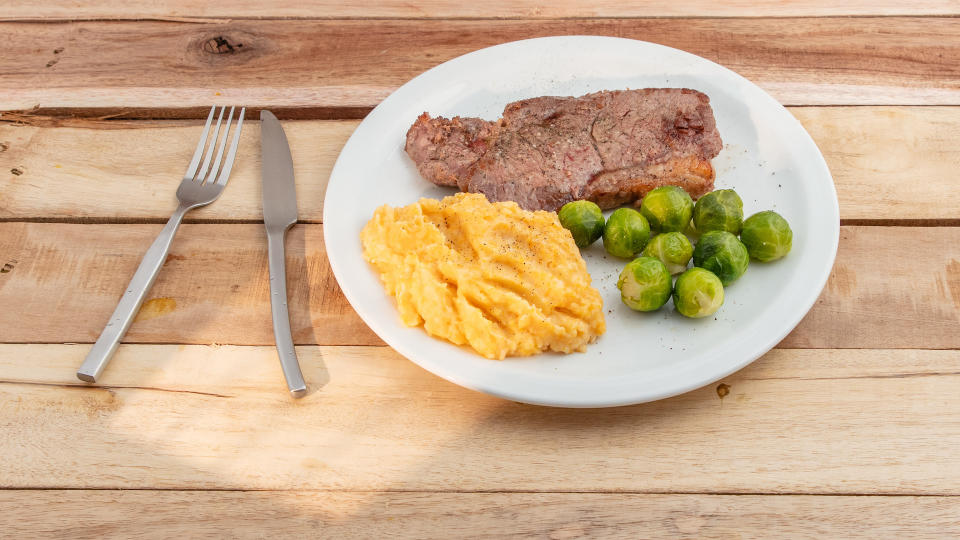
Dine out in style with your pooch with an appropriate portion of lean red meat (for protein, iron and omega 6), and mash as a side. Choose sweet potatoes over white potatoes, as they are high in fiber, vitamin A, C and B6 and beta carotene. Don’t add butter and other fatty ingredients to your dog’s mash, and serve the main ingredients plain and simply cooked.
27. Bone broth
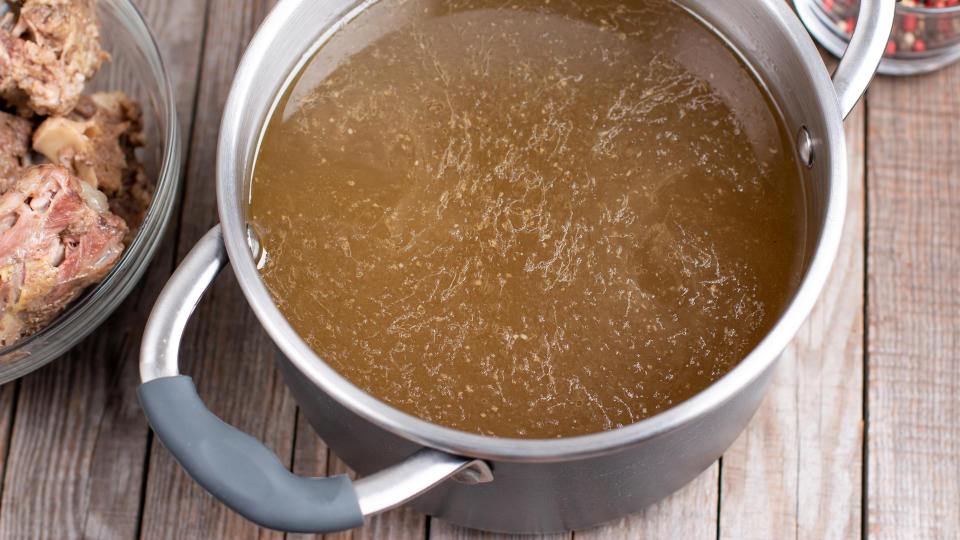
This health-giving elixir is all the rage among humans, for its anti-aging qualities as well as supporting immunity, joint health, promoting sleep and good digestion. And the good news is that it’s great for dogs too. It is packed with vital minerals, such as magnesium, calcium, phosphorus and more, which have major benefits for a dog’s heart, nervous system, muscles and more. Make your own dog-friendly recipe rather than buying a commercial broth intended for humans, as these may have toxic ingredients such as onions or garlic.
You can feed it daily with their food, or freeze it in ice cubes to offer a healthy, cooling treat on a hot day.
28. Algae
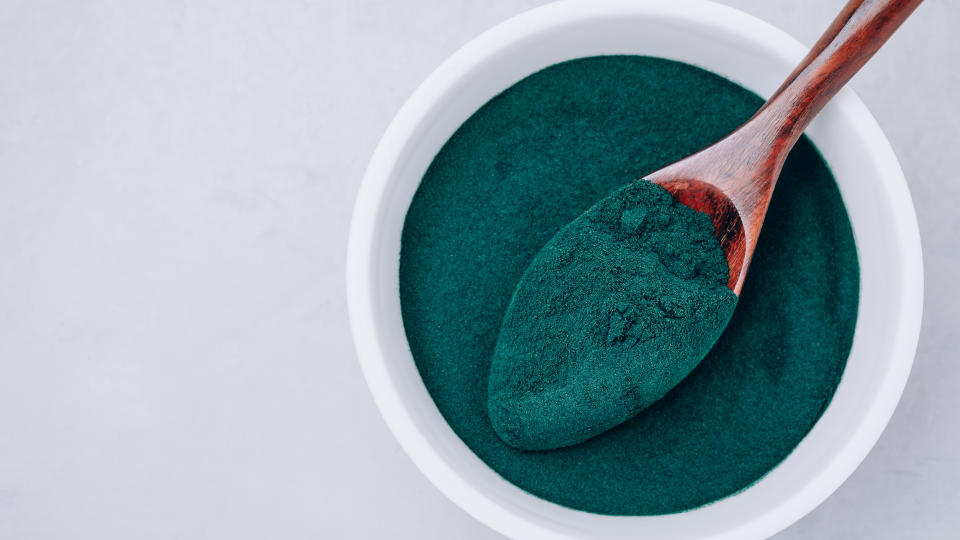
Blue-green algae – in the form of spirulina – is rich in nutrients, protein and full of life-giving chlorophyll, vitamins, minerals, omega 3s and enzymes. It belongs to the group of good bacteria and has antioxidant and anti-inflammatory properties.
This teal-green powder can strengthen the immune system, improve gastrointestinal health, and reduce the risk of allergies.
29. Bananas
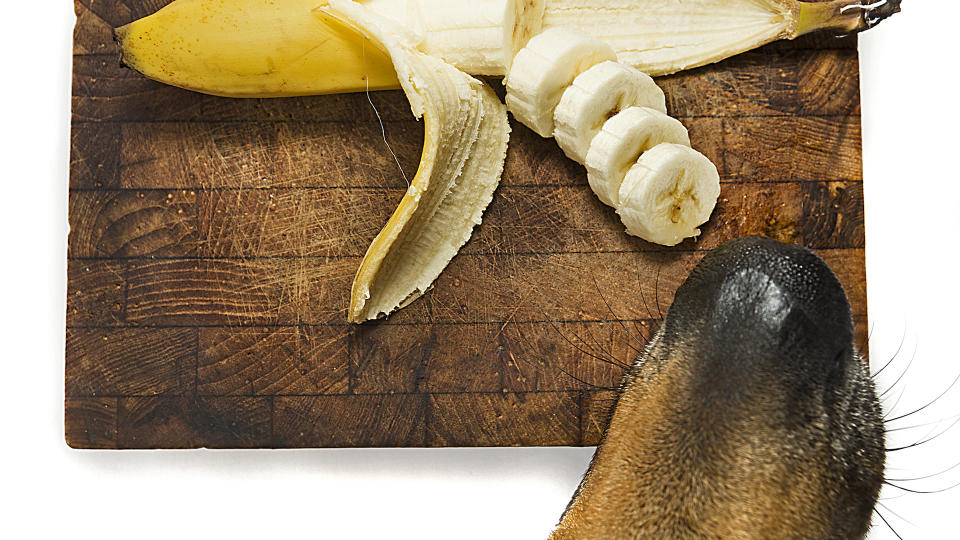
More commonly associated with monkeys than pet dogs, bananas are a great low-calorie, high-fibre treat for dogs. They are low in cholesterol but contain vitamins (including biotin) and minerals such as potassium and copper.
Just give small slices as a sweet snack, or you can freeze it for a cooling treat in the summertime.
30. Peanut butter
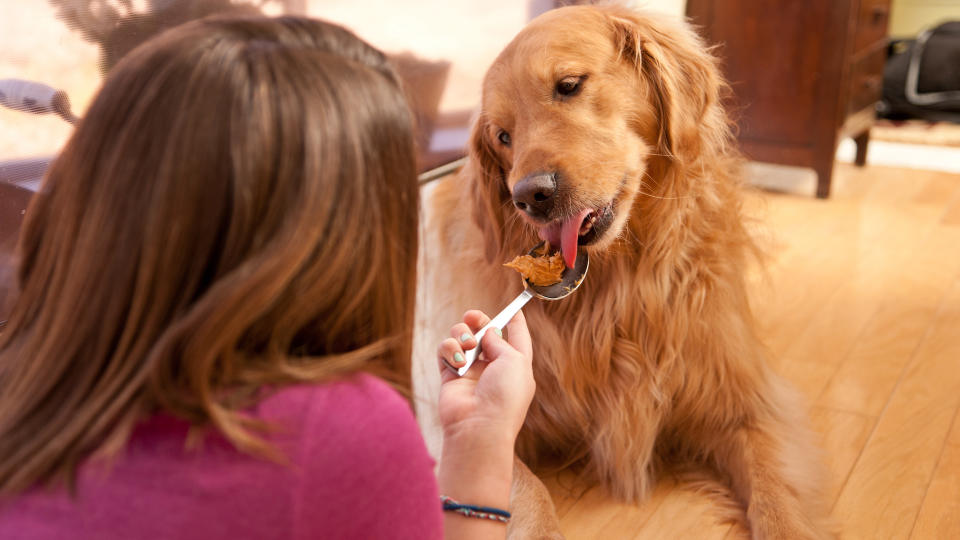
An ideal paste to use in Kongs and other chew toys as most dogs can eat peanut butter. It is also handy as a high-value training treat.
It’s crucial you check the ingredient list and some brands of peanut butter contain xylitol which is toxic for dogs.
Peanut butter is not only appealing to canine tastebuds but is a good source of protein, healthy fats and vitamins B6 and E. However, as it is high in fat, it should not be fed to overweight dogs, those with kidney problems or dogs on special diets.
31. Strawberries
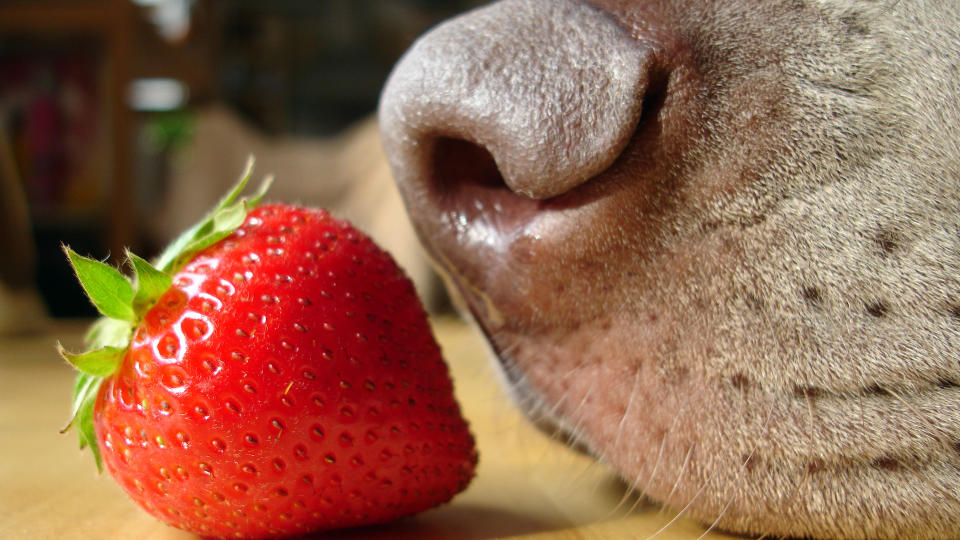
Save a strawberry for your dog next time you’re enjoying this delicious summery fruit. Strawberries contain fiber and vitamin C and are packed with antioxidants.
They even contain an enzyme that may help clean teeth – however they also contain natural sugar, so take care when offering them.
32. Cauliflower bites
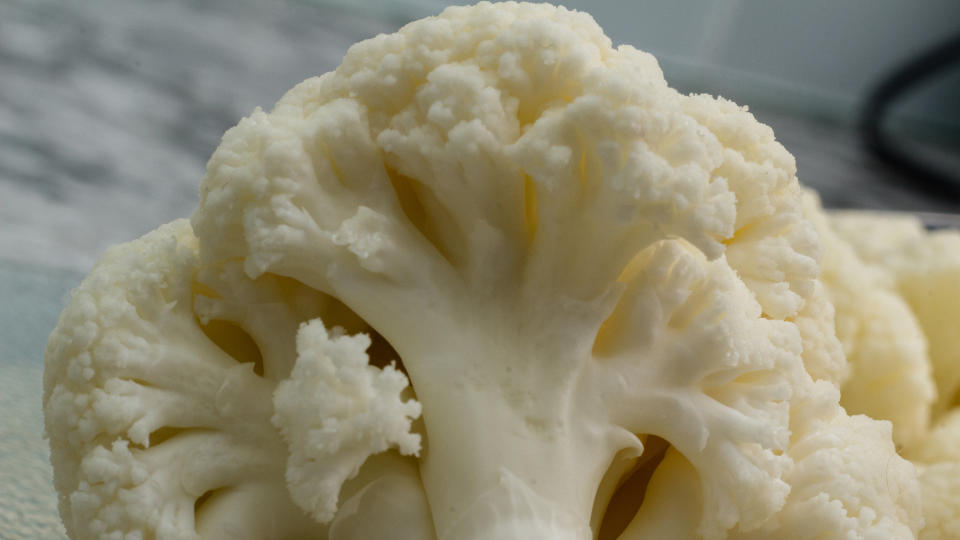
Either raw or cooked, cauliflower is safe for dogs to eat, and they will be rewarded by the nutritional benefits, which include fiber, vitamins B6, C and K. This means it aids digestion, and provides antioxidants and anti-inflammatories.
But cauliflower cheese is off the menu, due to the high fat and lactose content of cheese. Feed your dog cauliflower in its natural state, without adornment – although he might enjoy it dipped in peanut butter (xylitol-free) or unsweetened Greek yogurt.

